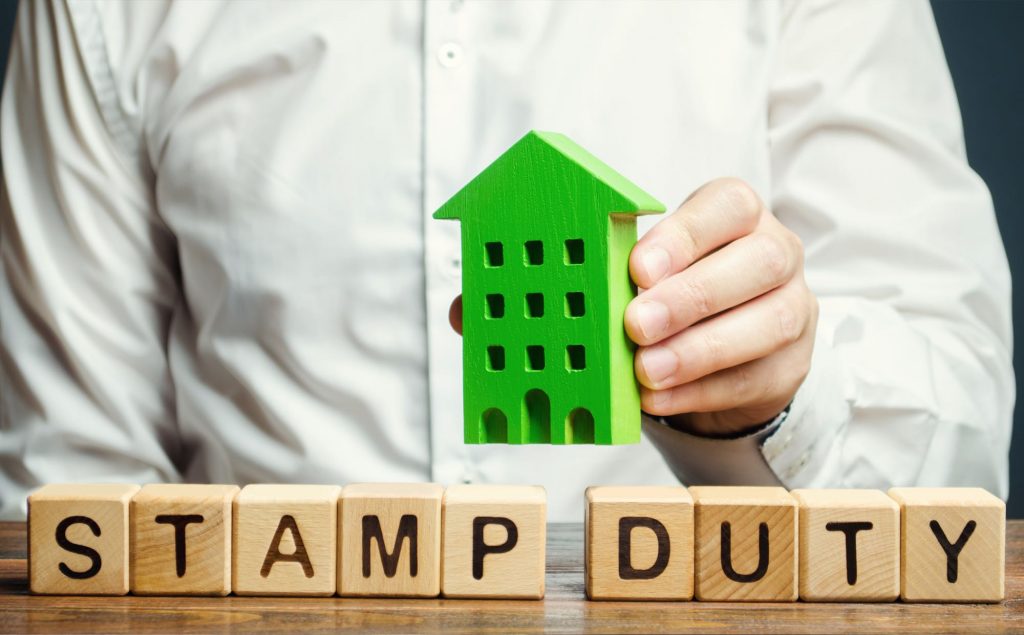Welcome to our Stamp Duty Calculator, a simple and easy-to-use tool for calculating the stamp duty fees associated with buying a property in the UK.
Stamp duty is a tax that is applied to most property purchases in the UK. The amount of stamp duty you are required to pay depends on the value of the property and your personal circumstances.
Our calculator takes these factors into account to provide an accurate estimate of the stamp duty fees you can expect to pay. Simply enter the purchase price of the property, your residential status, and any applicable concessions, and our calculator will do the rest.
In addition to providing an estimate of the stamp duty fees, our calculator also provides a breakdown of the calculation, so you can see how the final amount is arrived at. This can help you understand the different components of stamp duty and how they apply to your specific situation.
Using our calculator is quick, easy, and completely free. You can use it as many times as you like, so you can calculate the stamp duty fees for multiple properties or run different scenarios to see how they would affect the amount you are required to pay.
Whether you’re a first-time buyer, an experienced property investor, or a property professional, our Stamp Duty Calculator is a valuable tool for anyone looking to buy a property in the UK. Try it out today and see how much stamp duty you can expect to pay on your next property purchase.
Stamp Duty Calculator 2022
A stamp duty calculator is a tool that allows users to estimate the amount of stamp duty fees they would need to pay when purchasing a property. Stamp duty is a tax that is applied to most property purchases in many countries, and the amount of stamp duty you are required to pay depends on the value of the property and your personal circumstances.
A stamp duty calculator typically works by asking the user to input information about the property purchase, such as the purchase price, the location of the property, and the user’s residential status. The calculator then uses this information to calculate an estimated amount of stamp duty fees based on the applicable stamp duty rates and rules for that location.
To use a stamp duty calculator in the UK, you will typically need to provide the following information:
The purchase price of the property
The location of the property (i.e. the country or region)
Your residential status (e.g. first-time buyer, investor, etc.)
Any applicable concessions or exemptions (e.g. first-time buyer relief, multiple dwellings relief, etc.)
In addition to this basic information, you may also need to provide additional details about the property and your personal circumstances in order to get a more accurate estimate of the stamp duty fees you would need to pay. For example, you may need to specify the type of property (e.g. residential, non-residential, mixed use), the number of dwellings on the property, or whether the property is subject to any other taxes or charges (e.g. land transaction tax in Wales).
It is important to note that the stamp duty rates and rules in the UK can vary depending on the location and type of property, as well as your personal circumstances. Therefore, it is important to use a stamp duty calculator that is specifically designed for the UK market and that uses the most up-to-date information about the applicable rates and rules.
The accuracy of a stamp duty calculator will depend on the quality of the underlying data and algorithms that are used to perform the calculation. In general, reputable stamp duty calculators will use accurate and up-to-date information about the applicable stamp duty rates and rules in a particular location. However, the final amount of stamp duty fees that you are required to pay may vary slightly depending on the specific circumstances of your property purchase.
There may be some limitations to using a stamp duty calculator, depending on the specific tool that you are using. For example, some calculators may only be able to provide estimates for a limited number of locations or property types, or may not be able to account for complex or unusual circumstances that could affect the amount of stamp duty fees that you are required to pay. It is always best to consult with a qualified professional (such as a lawyer or accountant) for advice on your specific situation.


